Two and a half years ago we spoke to Joe Papp following the declaration of a positive dope test result for his compatriot Tom Zirbel.
We wanted to know a little more about the subject and the complexities of Tom’s case and Joe was a good source of knowedge, having himself served a two-year suspension following a positive test result for metabolites of testosterone at the 2006 Tour of Turkey, and on his own admission gained a large amount of first-hand experience through his racing career.
On the day that Nike finally move to distance themselves from Lance Armstrong we thought it would be interesting to revisit Joe’s interview from 2010, before catching up with his current thoughts on the subject soon.
* * *
Joe Papp – Still Atoning for His Doping
Like most folks, we’re sick of the drugs scandals, but then the Tom Zirbel situation pops up and we to have accept that it’s still a problem and we need to understand it better.
Here’s what Joe Papp had to say – and it’s scary!
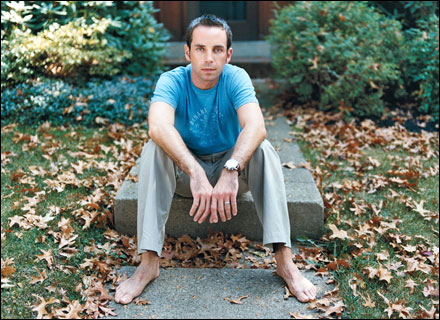
You had a good season in 2006 – positive test apart – what would 2007 have held?
“It was looking really good; the team had said that they were going to take out a UCI licence for 2007 – even after the positive test, they said that if I beat it, they’d retain me and take the team UCI for 2007.”
The team rode a very cosmo programme – were international borders being crossed in possession of proscribed substances?
“It doesn’t take a lot of imagination to figure that one out – we were a team of international riders on a team which practices systematic doping.”
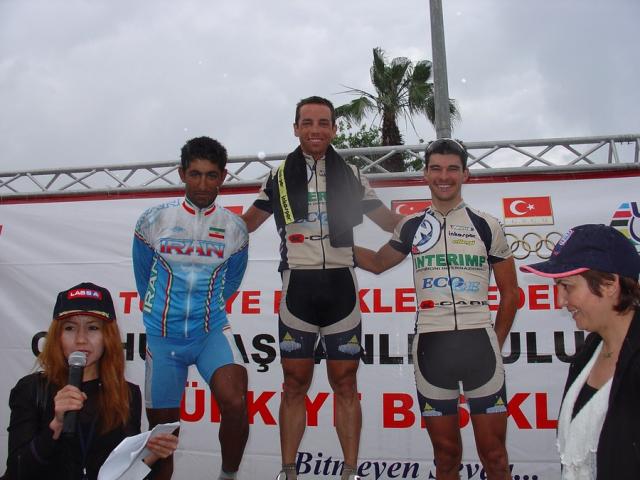
Did you ‘spill the beans’ on the team doctors?
“Yeah, the UCI did nothing; the two US guys are still practising.”

It seemed surprisingly easy for the team to ‘connect’ with suppliers, all over the globe.
“You’d think it would be difficult, but it’s not. Say you’re in Argentina, you know some riders, or even meet them on a ride.
“The conversation turns to ‘preparation’ – that’s the code for broaching the topic. One guy might say; ‘whooaah!’ but another guy wouldn’t bat an eye lid; you’d probe each other until you felt comfortable and then talk about who and where.”
How hard is it to beat the tests?
“It’s not hard, as long as you don’t screw up.
“I was taking it for five years, before I was caught – and the strange thing is, I had another five substances in my system which I shouldn’t when I was tested, but they didn’t show up. Having said all that, I was never tested out of competition; that’s the way to go. The blood profile (biological passport) and out of competition tests are two of the biggest deterrents.
“If you think about it, the rider is going to be at his most cautious on race day.
“Believe it or not, I believe that most riders don’t want to dope – I think that amnesty would work, where everyone admitted their indiscretions, but with no come-backs.”
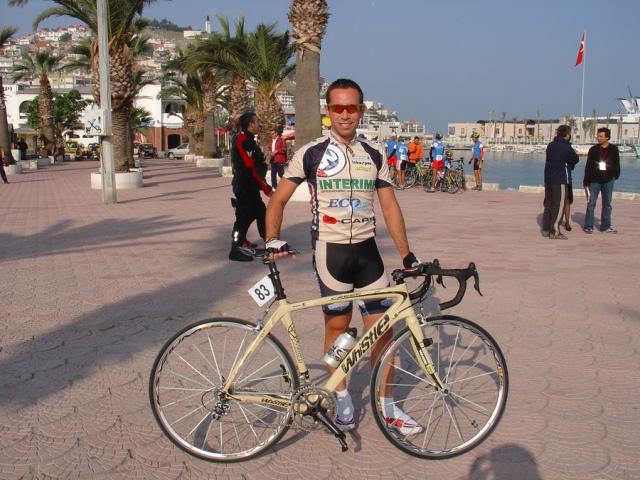
EPO was very expensive; in the 90’s it was around 1,000 euros for a one month course.
“It came down a lot!
“You’d be looking at the three to four hundred dollars per rider per month. The team paid, then clawed that back from the riders wages and prizes. We never knew what we’d won, the DS would grab the prize money.
“We never knew where the stuff came from; the DS’s brother would disappear for half a day, then re-appear with a cardboard box full of ampoules, of Pot Belge – it was hard core!”
Did the UCI go after Whistle?
“They didn’t go after any of those guys; I don’t know why. Maybe it was because I initially gave my evidence to US anti doping authorities.
“It was later before I spoke to the UCI.
“Ann Gripper (head honcho on the UCI anti drugs team) invited me to speak at a new initiative – the UCI was going to produce video modules about what the impacts of failing a test are, beyond the health aspect and into the rider’s personal life.
“I never heard back, I’ve rang her a few times, but not heard a word in response.”
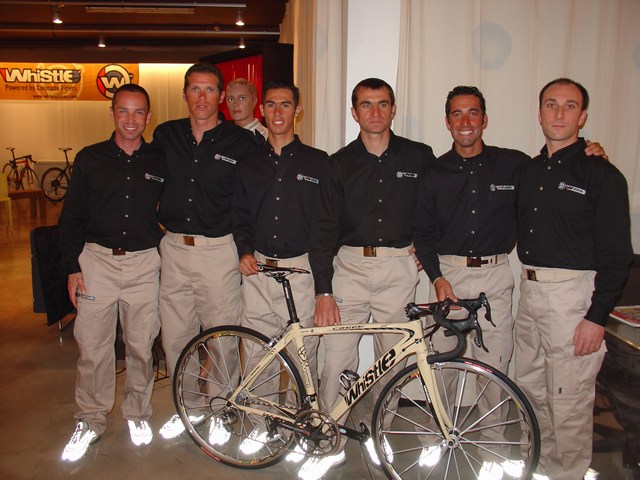
Why deny the charges to start with?
“Because Whistle were going to renew with me, if I beat the positive.”
Your hematocrit was at 58, were there any psychological effects?
“There was always anxiety that you were going to get caught and you could feel your heart working harder to pump the blood but psychologically there was no impact.”
Did you never succumb to ‘roid rage, or the like?
“No, because you actually felt good, strong and you recovered very well.”
You tested positive for ‘metabolites of testosterone.’
“Yeah, testosterone is to help you recover, get your hormones back – it’s not to build muscle mass.
“You can take it three ways; as a gel, rubbed into your abdomen: injected into the muscles, that’s longer term and has the downside of being easier to detect in a test; or you can take tablets or capsules.”
EPO – a 10% boost to performance?
“For me, 11 or 12% when injected under the skin.
“It takes three weeks for you to notice the difference but by week four it’s really kicked in. That’s the beauty, you don’t need to take it for a year to get the boost.”
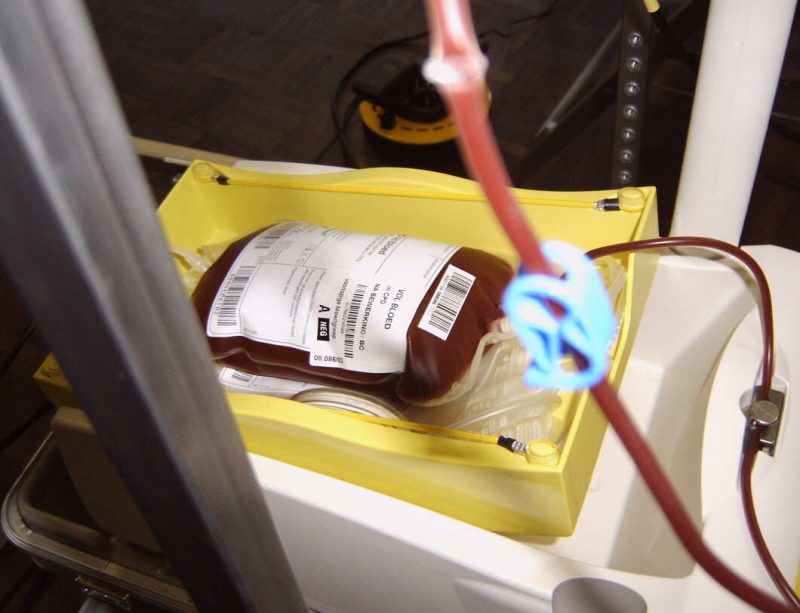
HGH?
“That’s scary stuff, it can kill you, its purpose is to repair damage. ‘Recovery’ is the word, all the time.”
Cortisone?
“It suppresses the inflammatory response; it takes away the pain!
“You have legs like steel cables and can ride 53 x 11 at 55 kph for 5 K – but it can really mess up your body.
“I developed secondary adrenalin suppression at the end of 2005 – that’s where your body stops producing it, so eventually it becomes worthless.”
Insulin?
“Aids recovery, you can store more carbs – but that can kill you too!”
Anabolic steroids?
“Again, recovery, that’s the thing; if you have two riders both at 100% on day one, but day two, one is at 93% and one is only at 90%, who’s more valuable to the team?”
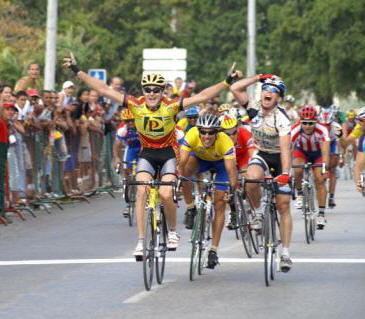
You mentioned that you took 100 substances.
“I never took that in the same week, but over my career, yeah.
“I kept a log of everything I took, on the one hand I was thinking; ‘this is insane’ but on the other hand, I was thinking; ‘hey! this is neat, I can use all this information in the future and keep the doctor right when he’s telling me to take something that I know doesn’t work for me!’
“I read something that David Millar said and it resonated with me – he wanted to get caught, he knew it was the only way to get out of it, he knew what was doing was wrong, but he wasn’t going to stop.
“Having said that, I never got sloppy or did anything deliberate to get caught, like taking amphetamines on race day.”
Did the drugs use spill in to ‘recreational?’
“No, it was purely business – my mentality was that I was spending the money and taking the risks to only enhance my performance.”
Weren’t you in constant discomfort with all these injections?
“You become very good at self-injecting. But some times your ass did look like a pin cushion, yes.
“Intravenous is best because you can use smaller needles; if you’re injecting into muscles – that’s sore!
“Some guys develop a needle fixation where they always have to be injecting themselves – but I never did.”
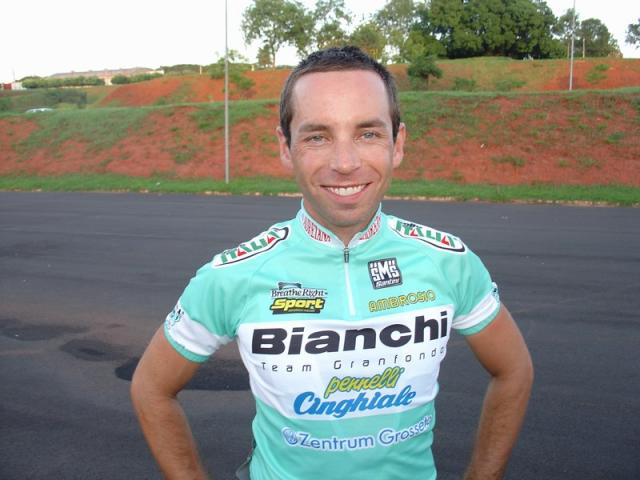
The year of your downfall was 2006; are things better in 2009?
“Better, but not as good as they could be.
“One of the main things I think they should do is to recalibrate the punishment system – less punishment if you take the authorities to the managers, doctors and DS’s who supply the stuff.
“I don’t think there’s open, organised use in teams now, the riders are left to their own devices – the big teams can’t afford the scandals.”
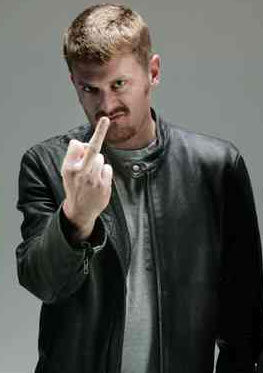
“Absolutely, it ruined my life; If I’d known how it would all end up, I’d never have touched it.
“The teams convince you that your balls won’t drop off if you take steroids; you’re part of a managed system; you feel great, with seemingly no side effects.
“But when I got caught it used up so much of my psychological and financial resources – it changed me.”
Eventually you cooperated?
“Yes, but all the energy that I used up doing that, and beforehand, I should have been using to get my wife safely into the United States. [Yuliet defected in Russia in July, then went to Venezuela, and was forcibly repatriated to Cuba in October 2006 – details here.]”
“By spending time, money and energy fighting the: doping charge that I was morally guilty of, while also trying to manage my wife’s escape from the Castro regime, I ended up failing completely at the latter, and wasting everyone’s time in the former (until I agreed to cooperate).
“At the moment when I tested positive, and then when Yuliet was on the run,: things were fine between us. It was only until the following year [2007] that things began to deteriorate, as I was first preparing myself for and then participating in the Landis arbitration – and then dealing with the collapse of my life as news of my testing positive was finally made public.
“After that it was a steady deterioration in our relationship, if for no other reason than the fact that we were physically separated and had only: infrequent contact via phone or email.”
Why get involved in the Landis hearings?
“The US anti doping agency asked if I’d testify; part of Landis’ defence was that testosterone isn’t used in cycling – but of course, it is!
“They wanted me to help refute his defence team’s claims. I believed that it might benefit me, help atone for my actions – I was busted, but came clean.
“I guess you could say that I was having an ethical conversion – I was starting to see the horizon.”
What now?
“It’s not a good time for me, financially or emotionally; by my actions I’ve locked myself out of a lot of things.
“Day to day, I find most comfort in my writing; the blog, contributing to other sites.
“I’m no longer an athlete, but one day, I’d like to get into management.
“It still disappoints me though that the UCI never bothered to get back to me.”
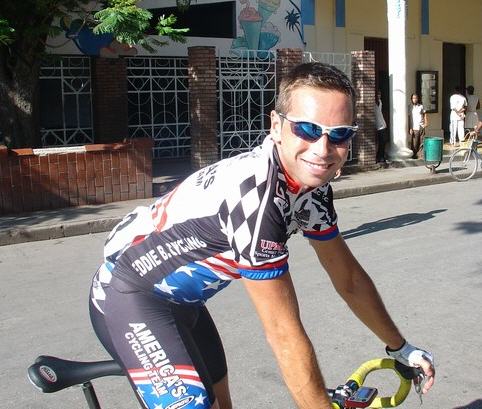
The day after our interview, Joe sent me an email – the last part of it read like this;
“I’d like to connect with some of the other athletes who’ve doped and been caught and aren’t just living life large after having earned hundreds of thousands of dollars…
“I’d rather connect with the ones like me, who have to make a life for themselves potentially away from cycling and see how we can use our collective negative experiences to create something positive, to help others avoid ending-up where we did and show that even if you do screw-up, royally, you can still recover.”
Sounds to us like the man is worth a second chance.



